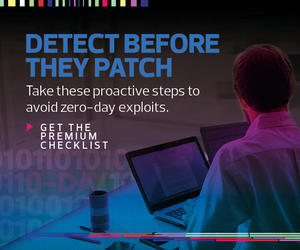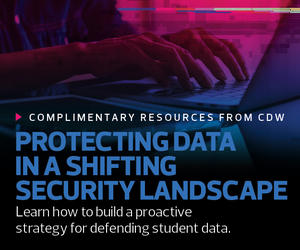EDTECH: What drew you to cybersecurity?
COLEMAN: I was always very attracted to team sports. This is the ultimate team sport. The alliance works with the private sector — all the way through down to the mom and pop shops, all the way up to Fortune 500 companies — and with government: federal, state and local.
That has always been very attractive to me, to convene folks so that we can solve problems. My favorite athlete and a fraternity brother of mine, Michael Jordan, would say, “Talent wins games, but teamwork wins championships.”
EDTECH: Distance learning was growing before the pandemic, but it has exploded over the past 18 months. Given that, how important is it to educate faculty on data privacy measures?
COLEMAN: Schools all the way down to preschool, these days, are leaning on technology use more than ever. COVID-19 certainly expedited that and gave it new life. For a lot of schools, accessibility of information was the first order of business. Security wasn’t necessarily top of mind. They wanted to make sure teachers, students and parents were able to access information, but they didn’t really think about security, for the most part.
Now, we already have seen massive school breaches this year, some of which have forced institutions to temporarily cancel classes. As colleges use technology more and more, online safety needs to be in the spotlight.
EDTECH: What are some ways data privacy regulations can be violated, even unknowingly?
COLEMAN: What we’ve seen primarily is the compromise of personally identifiable information. These days, bad actors are not necessarily saying, “Hey, send me a check for X amount.” What they’re doing is compromising personally identifiable information: Social Security numbers, driver’s license numbers, credit card information. Those things are very valuable on the dark web.
That’s why it’s so important for colleges to protect this information, and that’s what we see compromised publicly. Bad actors are making calculations in hitting a college. They’re thinking, “These are probably kids from families who have assets and have wealth to them.” The target-rich environment is something they’re very careful about choosing.
Click the banner below to see CDW's roadmap for a multifaceted cybersecurity program.













